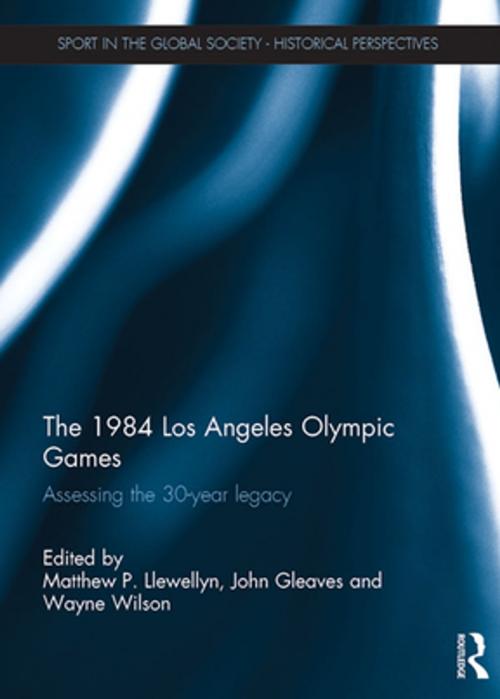| Author: | ISBN: | 9781317502456 | |
| Publisher: | Taylor and Francis | Publication: | October 2, 2017 |
| Imprint: | Routledge | Language: | English |
| Author: | |
| ISBN: | 9781317502456 |
| Publisher: | Taylor and Francis |
| Publication: | October 2, 2017 |
| Imprint: | Routledge |
| Language: | English |
The 1984 Los Angeles Olympic Games stand as the most profitable and arguably the most important event in the history of the modern Olympic movement. Fresh off the back of the financially disastrous Montreal Games of 1976 and the politically controversial Moscow Games of 1980, the Olympic movement returned to the United States for the sixth time in an attempt to salvage the economic viability and global prestige of the Olympics. The Los Angeles Olympics proved to be both provocative and polarizing. On the one hand they have been heralded as an overwhelming, transformative success, ushering the Olympic movement into the modern commercial age. On the other hand, critics have repudiated the Games as a manifestation of commercial excess and a platform for western political and cultural propaganda.
In conjunction with the 30th anniversary of the Los Angeles Olympics, this volume examines their legacy. With an international collection of contributing scholars, this volume will span a range of global legacies, including the increasing commercialization of the Games, the changing participation of women, the Communist boycott movement, nationalism and sporting identity, and the modernization and California-cation of the Games. This book was originally published as a special issue of the International Journal of the History of Sport.
The 1984 Los Angeles Olympic Games stand as the most profitable and arguably the most important event in the history of the modern Olympic movement. Fresh off the back of the financially disastrous Montreal Games of 1976 and the politically controversial Moscow Games of 1980, the Olympic movement returned to the United States for the sixth time in an attempt to salvage the economic viability and global prestige of the Olympics. The Los Angeles Olympics proved to be both provocative and polarizing. On the one hand they have been heralded as an overwhelming, transformative success, ushering the Olympic movement into the modern commercial age. On the other hand, critics have repudiated the Games as a manifestation of commercial excess and a platform for western political and cultural propaganda.
In conjunction with the 30th anniversary of the Los Angeles Olympics, this volume examines their legacy. With an international collection of contributing scholars, this volume will span a range of global legacies, including the increasing commercialization of the Games, the changing participation of women, the Communist boycott movement, nationalism and sporting identity, and the modernization and California-cation of the Games. This book was originally published as a special issue of the International Journal of the History of Sport.















